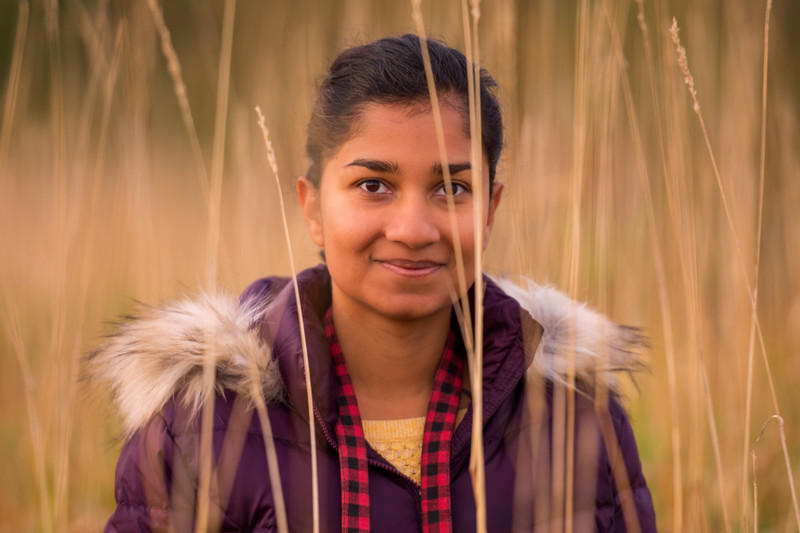Meet the chair: Dr. Suchinta Arif, CRC in Ecological Modelling
Author: UNB Research
Posted on Feb 26, 2025
Category: Research , Accolades

Among the most recent cycle of new and renewed Canada Research Chairs announced by the Government of Canada are two UNB researchers. One is Dr. Suchinta Arif, who begins her career at the University of New Brunswick (UNB) with funding and an appointment as Canada Research Chair (CRC) in Ecological Modelling.
Who are you?
My name is Dr. Suchinta Arif, and I am an assistant professor at UNB and Canada Research Chair in Ecological Modelling.
I grew up in Toronto, ON, where I mostly avoided taking science classes throughout high school—until, near the end of high school, I felt a strong pull toward biology when I discovered the field of conservation biology.
Since then, conservation biology has remained a main pillar of my studies and research.
I completed my undergraduate degree at the University of Toronto, specializing in ecology and evolutionary biology. While there, I took summer field courses at the Bamfield Marine Sciences Centre, where my passion for marine conservation emerged. I then pursued an MSc at Saint Mary’s University, studying conservation genetics of beluga whales, before diving into my PhD at Dalhousie University, where I focused on quantitative causal inference.
[What is quantitative causal inference? Read on! Dr. Arif explains more below.]
After my PhD, I took on an 18-month postdoctoral fellowship at Dalhousie, where I applied participatory future visioning to co-create brighter scenarios of Nova Scotia's marine future. I wrapped up that fellowship in December, just in time to start at UNB this month!
What does it mean to you to be awarded a CRC, especially so early in your career?
This chair represents a once in a lifetime opportunity to merge my innate passions for marine conservation, ecological modeling and equitable science.
It gives me a chance to become a leader in the field that I love, while also enabling me to foster a collaborative, supportive and inclusive environment for the next generation of scientists.
What are you working on?
I'm interested in a few different topics, all centered on marine and coastal conservation.
I'm currently working with students to develop innovative models that can help us better understand how climate change and human pressures are impacting coral reef ecosystems, Atlantic Canadian fisheries and key Atlantic marine and coastal species.
I'm also interested in understanding people-nature relationships, including through youth-led research I am leading that looks into the impacts of ocean literacy and education on marine stewardship.
In doing this work, I use a causal inference approach, supported by observational datasets and rely on theory that is guided by multiple expert opinions, including scientists and the lived experience of community members.
What is causal inference and how does it help your work?
Causal inference is a way to uncover and understand the cause-and-effect relationships between different variables or events. By identifying the true drivers of change, this approach helps researchers and decision-makers implement targeted and effective solutions to real-world problems.
Instead of relying on directly controlling variables to figure out what these causes are, we use frameworks that allow us to start from real world, observational data. By interpreting and analyzing this data, we can hypothesize what underlying factors drive particular effects—this is the “inference” part of the approach.
The strength of these approaches allows us to move past the often-repeated limitation that "correlation does not imply causation" in observational studies.
Causal inference explicitly addresses causality by rigorously testing hypotheses about cause-and-effect relationships. Using these methods allows us to understand—and change—complex and ever-changing real-world scenarios that we otherwise cannot effectively test in a controlled experimental setting—especially one that involves people.
This approach is relatively new in the natural sciences, and it helps us overcome the pitfalls of traditional methods, like correlational analysis, that risk misinterpreting data and can lead to a biased understanding.
By integrating these causal inference frameworks with ecological theory and observational data, my research allows us to pinpoint the mechanisms driving marine changes and helps develop actionable solutions to conserve and manage marine biodiversity sustainably.
For example, I use it to identify what factors help fisheries recover after overfishing or environmental stress, to understand the impact of human activities on coral reef health and to evaluate the effectiveness of marine conservation policies.
Why are your research topics and methodology important?
I hope to redefine how conservation science is conducted by incorporating a causal lens, while simultaneously advancing ecological models that are grounded in theory and multiple knowledge systems, like community knowledge.
The challenges facing our oceans—from climate change to overfishing—are vast and multifaceted.
Addressing these requires a deeper understanding of not just what is happening, but why it is happening.
This research will benefit a wide range of groups, including policymakers, conservationists and local communities whose livelihoods depend on marine ecosystems. Our community-engaged research will also empower youth, equity-deserving groups and Indigenous collaborators by creating inclusive research environments and highlighting how diverse knowledge systems can and should be incorporated into ecological modeling.
By working with diverse stakeholders, this research can create conservation solutions that are both scientifically sound and culturally relevant.
Equally important, I want to inspire and train the next generation of conservation scientists to think critically, inclusively and innovatively. Through my work, I want to shift how scientists approach observational data by advancing causal modeling as a standard tool in ecological research.
My goal is to generate actionable insights for fisheries recovery, to develop community-driven causal inference approaches that empower marginalized voices and to provide robust frameworks for understanding global marine changes.
Ultimately, I hope my research inspires others to adopt more integrated and equitable approaches for answering causal questions in the natural sciences.
More information
Dr. Suchinta Arif (CRC profile - external site)| Department of Biological Sciences | Department of Mathematics and Statistics | Faculty of Science, Applied Science and Engineering
Research at UNB | Graduate Studies at UNB | Postdoctoral fellowships